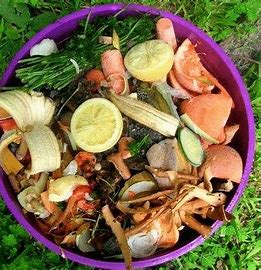You start the week with good intentions, stocking up on
fruit and vegetables to get your daily recommended servings. Then life gets in
the way. By Friday you find yourself binning not only fruit and vegetables, but
excess bread, milk and eggs.
Globally, an estimated 1.3 billion tonnes of food is wasted
each year. That’s a staggering one-third of all food produced for human
consumption, according to the Food and Agriculture Organization (FAO) of the
United Nations. And it doesn’t just damage our household budget, it affects the
planet too.
Food in landfill
Fewer than three out of 10 of us recognise the impact food
waste has on the environment. When food goes into landfill, it decomposes and
produces methane, a greenhouse gas 25 times stronger than carbon dioxide. If
you can, compost your food waste (even small balconies can accommodate a worm
farm) or investigate whether your local council collects food scraps for
compost. According to the FAO, home composting has the potential to divert up
to 150kg of food waste per household annually.

What are we doing wrong?
1. We cook too much food.
Solution: Unless you’ll be eating the leftovers within a few
days, or plan to freeze them, cook for your needs.
2. We throw out perfectly good food.
Solution: You don’t necessarily have to throw out foods as
soon as they reach the ‘best-before’ date. There’s a difference between use-by
dates and best-before dates. Foods stamped with a use-by date should be eaten
or frozen by this date as they are more perishable. But foods with a
best-before date can be eaten after this date, as they are less perishable and
usually perfectly acceptable.
3. We don’t know how to use food that’s past its best
Solution: Revive wilted vegetables by plunging them in a
bowl of iced water. Use them to make pesto, curry or soup, fry them up with
garlic, blend them into a smoothie, or make them into a vegetable soup. Lightly
cook fruit that’s gone soft, then use them to top your morning muesli or
weekend pancakes, layer with natural yoghurt, make into muffins or crumbles, or
use to fill a fruit tart.
4. We buy takeaways at the last minute before cooking the
food we have at home
Solution: Search online for recipes that take 20 minutes or
less – and plan them in advance.
5. We buy too much food.
Solution:
- check the cupboard and fridge
before shopping so you don’t double up
- shop with a meal plan and a list
and stick to it,
- only buy in bulk if you can use
it before it spoils
- don’t shop when you’re hungry, as
studies show you’ll buy more food than you need.
· 